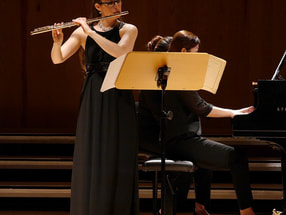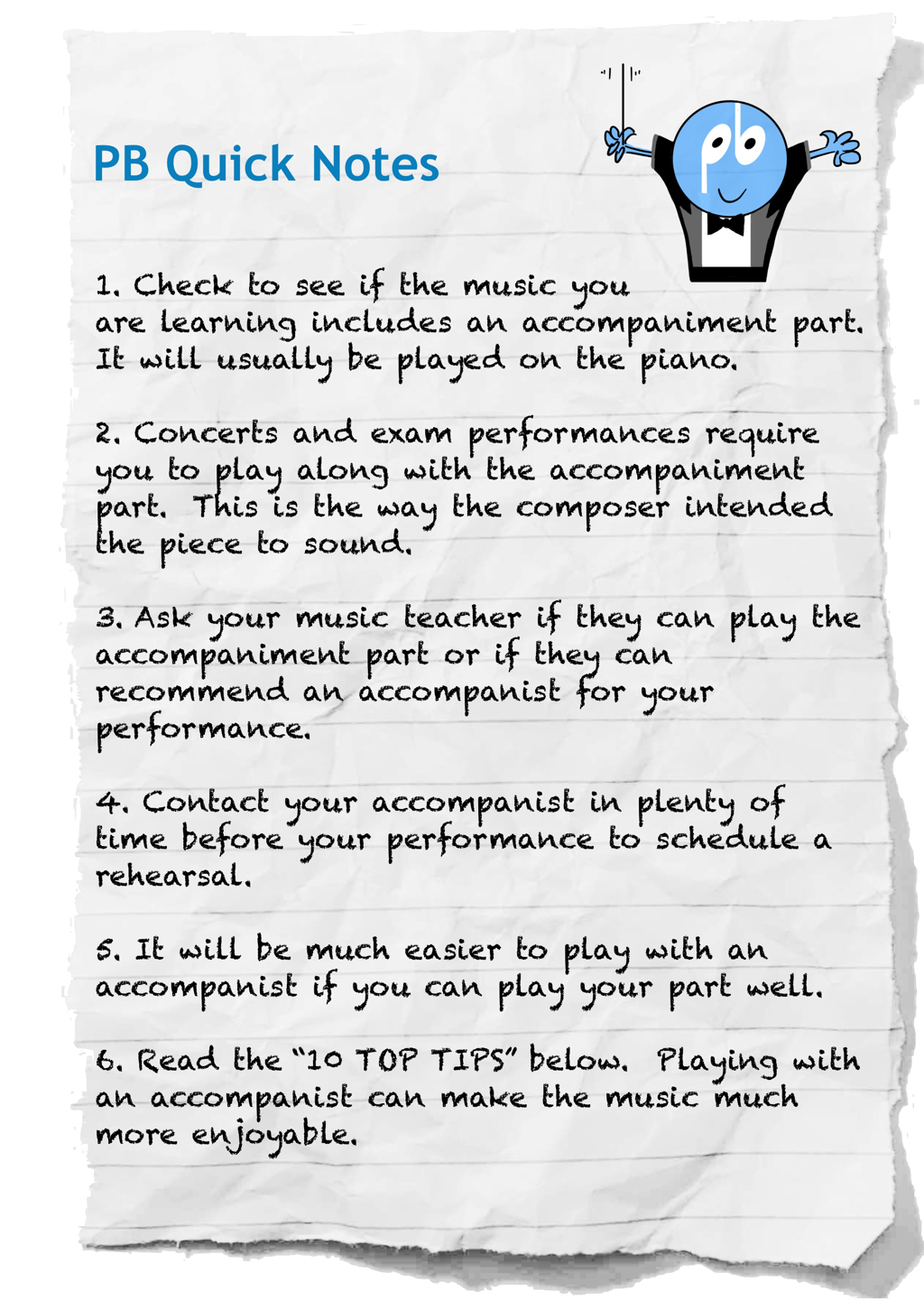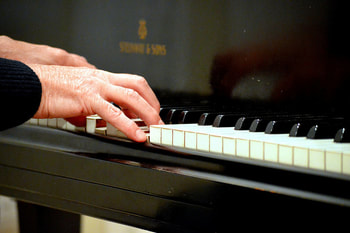|
What is an Accompaniment
Unless you are playing the piano, much of the music that you will learn to play was composed with the intension of being performed with piano or orchestral accompaniment. When practising alone at home, you may only be hearing a diluted version of the music, without the full flavour and character of both the melody and accompaniment together. Whether you are preparing for a concert, exam or just wish to have a shared music experience, a well-rehearsed performance with an accompanist will enrich your enjoyment and appreciation of both the music and your achievement together. Where is the Accompaniment?
The music you purchased usually includes a separate piano accompaniment part, sometimes called a score. Accompaniment parts show your music above the accompaniment notes so that the accompanist knows what you are playing, although your part does not show the accompaniment music. You may be worried that playing with an accompanist is more difficult and confusing when hearing someone else play at the same time as you. Learn your part well enough to play without stopping, up to the required tempo and with a steady pulse and you will feel more prepared for playing with an accompanist. You may find it helpful to listen to a recording of your music while looking at the piano accompaniment to see how it all fits together. |
|
10 TOP TIPS for playing with an accompanist.
Acknowledge and thank your accompanist for their support in your shared performing experience. |
|
Finding an accompanist
The music you purchased usually includes a piano accompaniment part, sometimes called a score. If you are preparing for an exam or performance you will need to play with an accompanist. Some teachers are comfortable playing the piano accompaniment in the lessons and there are CDs and downloadable accompaniments available from exam boards and the internet for practice purposes. Ask your instrumental music teacher if they will be playing the accompaniment for your exam/performance and if not, who they can recommend. School music departments will often have a teacher who can play the accompaniment. There are online resources available to find accompanists in your area and asking other parents, students or contacting the exam board may find you a good recommendation. Give yourself plenty of time to find an accompanist as they will need to learn the music and rehearse with you. |
|
Organising a rehearsal
Contact the accompanist as soon as you have a date for your exam or performance to confirm their availability and to book a rehearsal. The sooner the better, as the accompanist may have many students to rehearse, limiting your available times. They may ask you for the accompaniment part ahead of the rehearsal to practise. If the rehearsal takes place at the accompanist’s home, ensure that parents are welcome to attend. Depending on the difficulty of the music, you may only require one rehearsal of less than 20 minutes with higher exam grades needing two or more rehearsals of at least 30 minutes. |
Fees
Expect fees to be comparable with your music lesson fees to include the rehearsals and exam/performance. Fees may be higher for a concert performance especially for more demanding music. Ask up front for the fee and when and how the accompanist wishes to be paid. |



